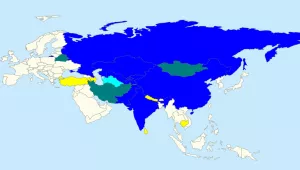Solving the Jurisdictional Conundrum: The Use of Domestic Civil Courts to Disrupt Overseas Illicit Procurement
Speaker: Aaron Arnold, Associate Project on Managing the Atom; Assistant Professor at Curry College
Over the past two decades, the United States has increasingly turned to targeted sanctions and export restrictions, such as those imposed against Iran and North Korea, in order to curb the spread of weapons of mass destruction (WMD). One vexing problem, however, is how to contend with jurisdictional hurdles when the violations occur overseas, in countries that are unable or unwilling to assist US enforcement efforts. To solve this problem, US prosecutors are turning to strategies with significant extraterritorial implications— that is, exercising legal authority beyond national borders. One such tool is to use civil legal procedures to seize assets linked to sanctions or export control violations in jurisdictions that lack cooperative arrangement with US enforcement agencies. While this may be an attractive strategy to bolster enforcement efforts against overseas illicit procurement such tools are not without consequence.



